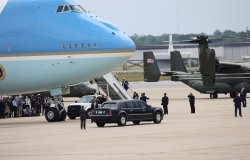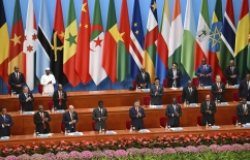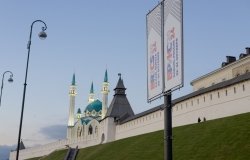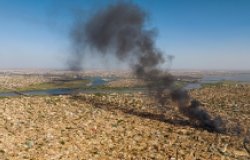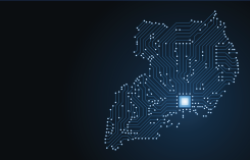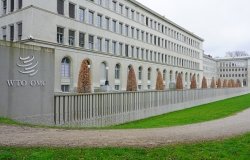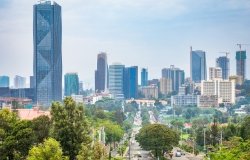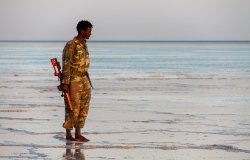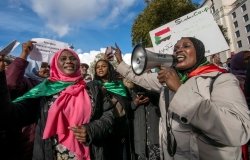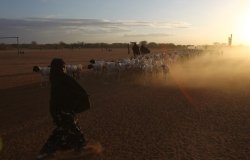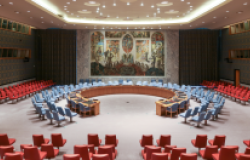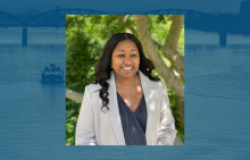
A blog of the Africa Program
A Global Dialogue on Oceans Governance & Maritime Security: The Afro-Southern Hemisphere Equation

On November 17, 2014, the Minister of Constitutional Affairs under President Nelson Mandela and Chairman of the South African Defence Review (2011-14), Roelf Meyer, opens a two day symposium on the challenges of southern oceans governance and economic opportunities while exploring maritime security and naval cooperation issues. Co-hosted by The Institute of Global Dialogue at the University of South Africa (IGD-UNISA) and the Department of International Relations and Cooperation: Policy Research and Analysis Unit in partnership with the Open Society Foundation, the Friedrich Ebert Stiftung and its Southern African Defence and Security Management network, the symposium's theme covers: 'The Blue Economy and Maritime Security challenges in South and Southern Africa: Leadership dilemmas in promoting a global South dialogue on Indian and South Atlantic Oceans governance.'
Its planning is a collaboration of South Africa's leading international relations- peace and security think tanks with participation from representatives in government's international relations-peace and security cluster. The hope is that this encourages greater synergies in South Africa's policy and decision-making processes partnering with civil society and academic communities. Over the two days, keynotes will be given by former naval chief and CEO of Armscor, J. Mudimu and the University of the Western Cape's Prof. Renfrew Christie. In the process, this event will launch the IGD-UNISA Global South Studies Initiative.
The symposium is inspired by increasing international and African emphasis on the health of the oceans coupled with sustainably unlocking their economic potential in securing the global commons. As such, this initiative follows up on President Jacob Zuma's remarks opening the 5th summit of the India-Brazil-South Africa (IBSA) Trilateral Dialogue Forum on October 18, 2011. In welcoming the leaders of India and Brazil, President Zuma said: "I wish to focus our vision on possible future areas of cooperation for IBSA. As you know, the scourge of piracy has been manifesting in both the Indian and Atlantic Oceans. I am specifically contemplating a maritime security dialogue and possible framework which could further include non-security functional cooperation areas of engagement." Fast forward to 2014, the economic potential of South Africa's vast territorial waters motivated a new dimension to Zuma's 2011 vision. It found articulation in the launch of Operation Phakisa which intends to bring together "government, industry, labour, civil society and academia to collaborate" in developing the potential of what has often been referred to as South Africa's maritime 10th Province.
As South Africa looks to succeed Australia and Indonesia in chairing the interregional Indian Ocean Rim Association (IORA) in 2017, the November 17-19 symposium deliberations will embrace both dimensions articulated by President Zuma in 2011 and more recently almost four years to the day in 2014 while extending them to include the interregional concerns of the South Atlantic as well. In effect, this will amount to the beginnings of an ongoing tri-continental Afro-Asian-South American discourse on the sustainable economic and security future of the oceans with South and Southern Africa as the fulcrum of a more institutionalized southern hemispheric system of cooperation to balance the more developed architectures of the north.
In so doing, the November symposium becomes the first coming together of diverse governmental and non-governmental stakeholders in fleshing out South Africa's proverbially geostrategic identity as a country that uniquely sits astride the convergence of the 'southern sea lanes' at the tip of the African Union's only bi-coastal regional economic community: the Southern African Development Community (SADC).
The fact that this takes place with the participation of experts from Australia, Brazil and India as well as representatives from the western and eastern coastal regions of Africa underlines the global scope of issues and perspectives to be covered. This is amplified in the broad themes to be covered:
Indian Ocean-South Atlantic Interregional Landscape
African Maritime Landscape: Implications for SA & SADC
African Comparative Maritime Security Perspectives
The Blue Economy in the Southern Oceans Nexus
Possible Frameworks: IBSA Trilateralism and other options
A 'way forward' cooperation agenda accompanied by policy recommendations will be forthcoming from the two days of discussion as bases for a continuing African, global South and North-South dialogue and engagement on a sustainable oceans economy and maritime security. While the maritime sector was not part of the US-Africa Summit, this is an area that can ill afford to be ignored in the US-Africa equation.
Francis Kornegay is a Global Fellow of The Wilson Center as well as Senior Research Fellow of the Institute for Global Dialogue-University of South Africa and symposium organizer.
Photo courtesy of Eschaper via wiki commons
About the Author
Francis A. Kornegay, Jr.

Africa Program
The Africa Program works to address the most critical issues facing Africa and US-Africa relations, build mutually beneficial US-Africa relations, and enhance knowledge and understanding about Africa in the United States. The Program achieves its mission through in-depth research and analyses, public discussion, working groups, and briefings that bring together policymakers, practitioners, and subject matter experts to analyze and offer practical options for tackling key challenges in Africa and in US-Africa relations. Read more
